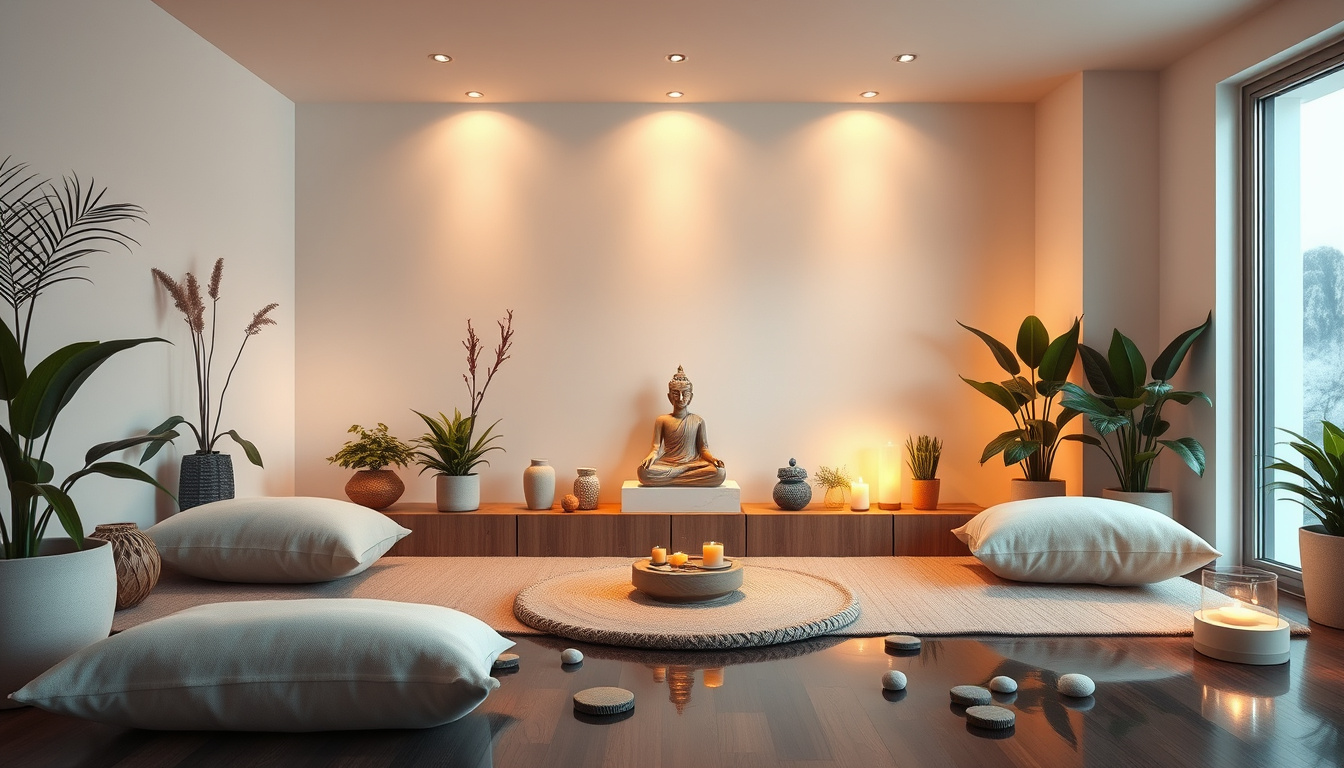In today’s fast-paced world, where constant notifications and endless to-do lists can feel overwhelming, finding a moment of stillness and clarity is more valuable than ever
In today's fast-paced world, achieving a restful night’s sleep can often feel like an impossible dream. Stress, anxiety, and the incessant pull of technology can rob us of the deep, restorative slumber we crave. Fortunately, the ancient practice of meditation for sleep emerges as a powerful tool, helping to calm our minds and prepare our bodies for a peaceful night’s rest. In this ultimate guide, we will explore the science behind sleep and meditation, uncover various techniques to enhance your nightly routine, and provide tips for creating a soothing meditation environment. Whether you're an experienced practitioner or new to the world of meditation, you’ll discover practical strategies to overcome common challenges and unlock the restful nights you deserve.

In our fast-paced world, understanding the science behind sleep and meditation is crucial for enhancing our overall well-being. Sleep is not just a passive state; it is an active process that plays a vital role in our physical and mental health. Recent studies show that incorporating meditation for sleep can significantly improve the quality of rest. When we meditate, we activate the body's relaxation response, which helps lower stress levels and promotes an overall sense of calm. This reduced anxiety can lead to a deeper and more restorative sleep, allowing the body to recover and rejuvenate. Furthermore, mindfulness meditation techniques focus on present-moment awareness and can help free the mind from racing thoughts, making it easier to drift into a restful slumber. By understanding the interplay between sleep and meditation, we can harness these practices to cultivate better sleep hygiene and improve our nightly routines.
Meditation for sleep is an increasingly popular practice that helps individuals enhance their quality of rest through various techniques. One of the most effective types is guided meditation, where an instructor leads participants through visualization exercises designed to create a tranquil mental space. Another technique is mindfulness meditation, which encourages focus on the present moment, aiding in letting go of the day’s stresses that may hinder sleep. Additionally, body scan meditation involves systematically paying attention to different parts of the body, promoting relaxation and awareness. For those who enjoy auditory aids, sound meditation incorporates calming music or nature sounds to help facilitate a serene environment conducive to sleep. By incorporating these meditation techniques into your nightly routine, you can not only improve the quality of your sleep but also cultivate a deeper sense of peace and well-being.
'The mind is everything. What you think you become.' - Buddha

Creating a sleep-inducing meditation space can significantly enhance your nightly routine, especially when utilizing meditation for sleep. Start by choosing a quiet corner in your home where you feel most comfortable and can be free from distractions. Soft, warm lighting is essential; consider using lamps or candles that provide a calming glow. Incorporate comfortable cushions or a yoga mat to create a cozy seating area, making it inviting for your meditation sessions. To elevate the atmosphere, you might want to add soothing scents through essential oils or incense, such as lavender or chamomile, which are known for their relaxation properties. Incorporating gentle sounds, such as nature tunes or ambient music, can also help in maintaining a serene environment conducive to meditation for sleep. Remember to keep the space tidy and organized, as clutter can be distracting and counterproductive. With these simple elements in place, your meditation space will be a haven for relaxation and restful sleep.
Establishing a nightly meditation routine can be a transformative step towards enhancing your sleep quality. As many studies have shown, meditation for sleep is not merely a trend but a scientifically backed practice that promotes relaxation and tranquility at the end of your day. By creating an environment conducive to meditation, such as dim lighting and minimal distractions, you can effectively signal your body that it’s time to wind down. Consider setting aside 10 to 20 minutes before bed for simple meditation techniques, such as deep breathing, guided imagery, or mindfulness exercises. These practices can help calm your racing thoughts and reduce anxiety, making it easier to drift into a restorative sleep. Incorporating this nightly ritual into your routine will not only help you fall asleep faster but also improve the overall quality of your sleep, leading to better health and well-being.

Meditation for sleep can be incredibly beneficial, but many individuals encounter common challenges that may hinder their practice. One of the primary obstacles is a restless mind that refuses to quieten, often leading to frustration. To overcome this, it is essential to recognize that the goal of meditation is not to eliminate thoughts completely but to observe them without attachment. Developing a consistent routine is another critical factor in enhancing meditation for sleep. Setting aside a specific time each night signals your body that it’s time to wind down. Additionally, creating a calming environment, free from blue light and distractions, can make a significant difference. Utilize guided meditations or soothing sounds tailored for sleep as these resources can ease you into the meditative state more effectively. Lastly, patience is key; understanding that meditation is a skill that improves over time can help cultivate a more rewarding experience, ultimately leading to a more restful night’s sleep.
Unlock Calm with Guided | Download now and get 3 free meditations
The Only Meditation App That Evolves with You.
Guided Uses AI to Adapt to Your Mood, Goals & Preferences.
